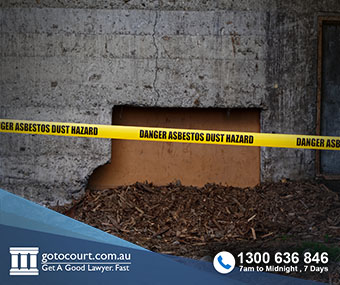Call our lawyers
now
or,
have our lawyers
call you
Residential Tenancies (NT)
Updated on Nov 03, 2023 • 5 min read • 178 views • Copy Link
Residential Tenancies (NT)
Most agreements relating to residential tenancies in the Northern Territory are subject to the terms of the Residential Tenancies Act 1999 and the Residential Tenancies Regulations. These terms provide a framework for negotiating and resolving disputes in relation to residential tenancy agreements. Disputes about tenancies in the NT are heard by the Northern Territory Civil and Administrative Tribunal (NTCAT).
Consumer Affairs also assists with providing information and resolving certain kinds of residential tenancy disputes.
Kinds of residential tenancies in the NT
The Residential Tenancies Act 1999 only applies to certain kinds of residential tenancy agreements. For example, it does not apply to agreements relating to:
- holiday accommodation
- agreements under which no rent is payable
- agreements in respect of premises provided for the use of homeless persons for charitable purposes, and
- agreements for the sale of premises that also give one party a right to occupy the premises.
Furthermore, a residential tenancy agreement must satisfy certain requirements. If it is written it must provide certain details (eg the landlord’s details). A copy of the agreement must also be given to the tenant at the time it is signed. The landlord cannot require the tenant to pay for the cost of preparing the agreement.
Handling rent payment disputes
Rent must generally be paid in the manner and at the place specified in the residential tenancy agreement. A landlord cannot require a tenant to pay more than one rental period’s rent in advance. The tenant’s goods cannot be seized by the landlord to cover unpaid rent.
If the tenant is at least 14 days in arrears of paying rent, the landlord can give the tenant notice giving the tenant at least seven days to pay the rent. If the tenant does not pay the rent owing in the time given to do so, the landlord can then apply to have the residential tenancy agreement terminated.
Alternatively, if the tenant accidentally overpays rent and the tenancy ends before that rent can be applied to a rental period, the landlord must repay the tenant as soon as possible. If they do not do so, the tenant can apply to the NTCAT for a repayment order.
Resolving changes in rent disputes
The tenant’s rent can increase over the term of the residential tenancy agreement, but only if the residential tenancy agreement itself gives the landlord the right to increase the rent, and includes the method for calculating the increase. At least 30 days’ notice must be given before an increase in rent takes effect.
The tenant can make an application to the NTCAT that the rent payable is excessive. The landlord will then be given an opportunity to make submissions why the rent is not excessive. The NTCAT may then set a fair amount of rent for the next 12 months, if it considers that the rent is excessive.
Repairs and maintenance disputes
The Residential Tenancies Act 1999 sets out the landlord and tenant’s obligations in relation to repairing and maintaining the residential premises.
The landlord has obligations to ensure the premises are habitable and secure. The tenant has obligations to ensure the premises are kept clean and undamaged, and to not use the premises for illegal purposes.
The landlord must also keep the premises in a reasonable state of repair. The tenant can give the landlord notice if they require repairs. If the landlord does not do the repairs within seven days, the tenant may be able to make the repairs themselves and request the landlord reimburse them up for an amount up to the value of two weeks’ rent. If the repairs are required urgently, the NTCAT can order the landlord to ensure the repairs are done in a certain time.
Return of bond
At the end of a tenancy, the tenant is generally entitled to receive their bond back. However, the landlord can keep part of the bond for certain purposes; for example, rectifying damage caused by the tenant. The tenant can apply to the NTCAT for the full return of the bond in these circumstances, but the NTCAT may order that the landlord is entitled to keep part of the bond.
Tenants’ rights to terminate tenancy
The tenant can terminate an agreement relating to residential tenancies in the Northern Territory in the following circumstances:
- If access to the premises has been stopped for at least 3 days due to flooding, staying in the premises is a threat to the tenant’s health or safety or the safety of the landlord’s property, or the premises are uninhabitable, the tenant can terminate the tenancy with two days’ notice.
- By giving 14 days’ notice in relation to a periodic tenancy.
- By giving 14 days’ notice if the tenant warned the landlord they would be applying for public housing and their application was later approved.
- As a result of a breach by the landlord, in which case a court can terminate the tenancy for a serious breach or a court or the NTCAT can terminate the tenancy if the landlord does not rectify the breach after being given notice.
If you require legal advice or representation in any legal matter, please contact Go To Court Lawyers.

Affordable Lawyers
Our Go To Court Lawyers will assist you in all areas of law. We specialise in providing legal advice urgently – at the time when you need it most. If you need a lawyer right now, today, we can help you – no matter where you are in Australia.How It Works







1. You speak directly to a lawyer
When you call the Go To Court Legal Hotline, you will be connected directly to a lawyer, every time.


2. Get your legal situation assessed
We determine the best way forward in your legal matter, free of charge. If you want to go ahead and book a face-to-face appointment, we will connect you with a specialist in your local area.


3. We arrange everything as needed
If you want to go ahead and book a fact-to-face appointment, we will connect you with a specialist in your local area no matter where you are and even at very short notice.


















